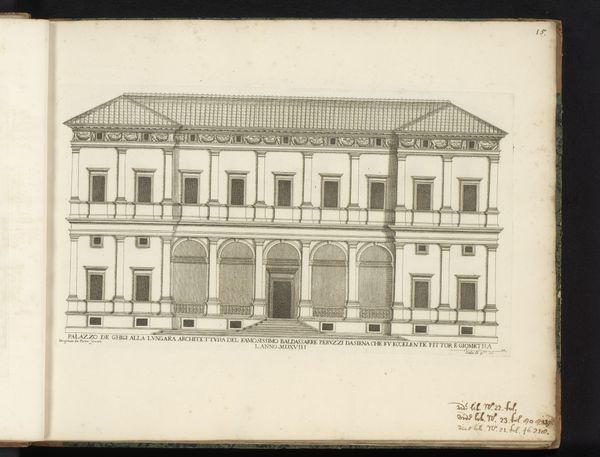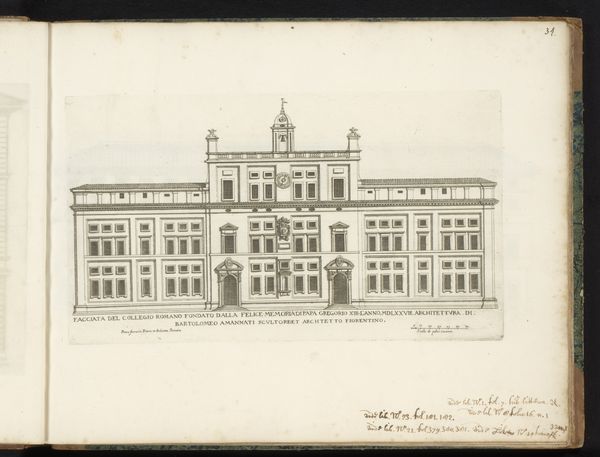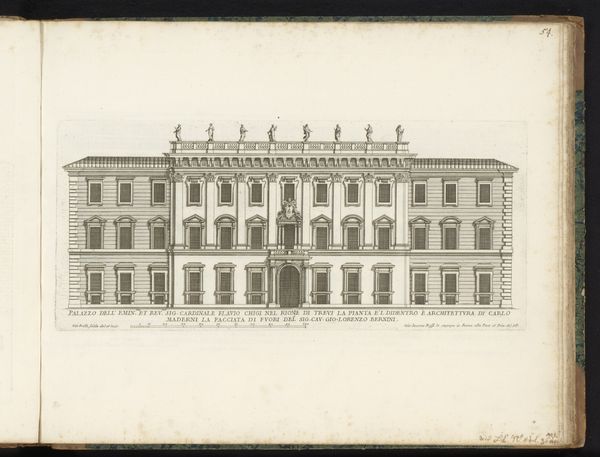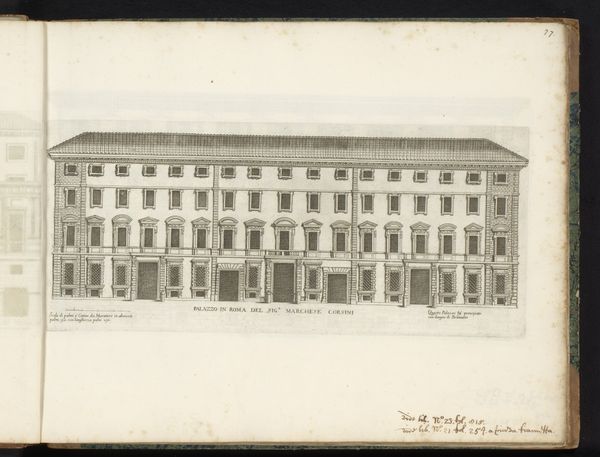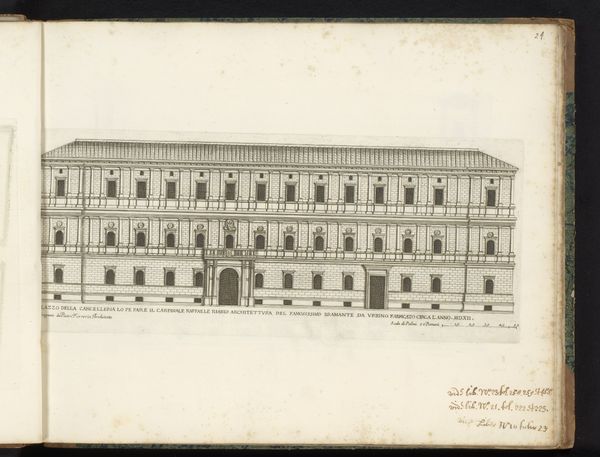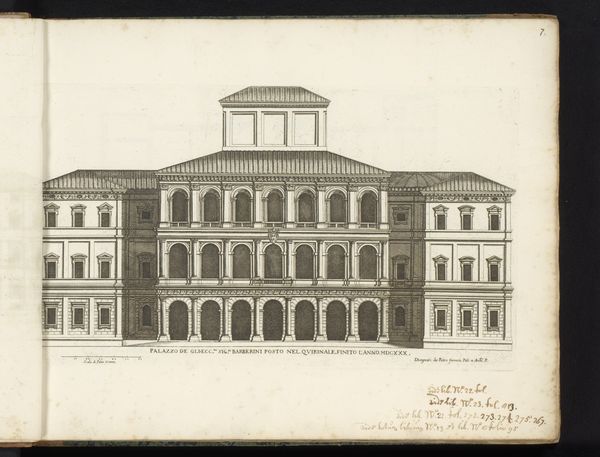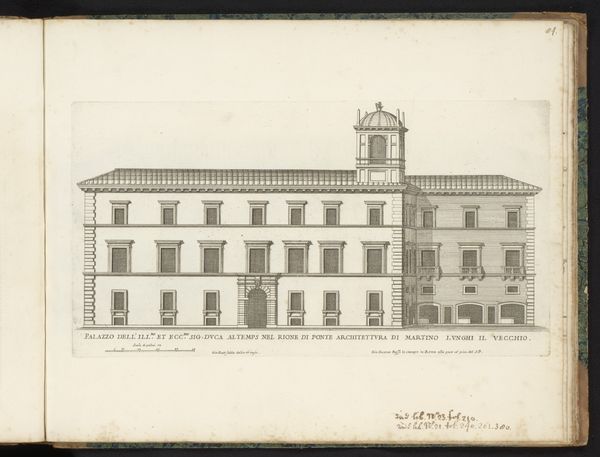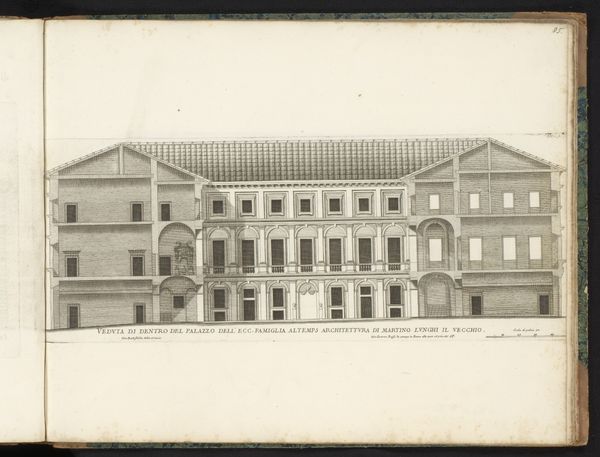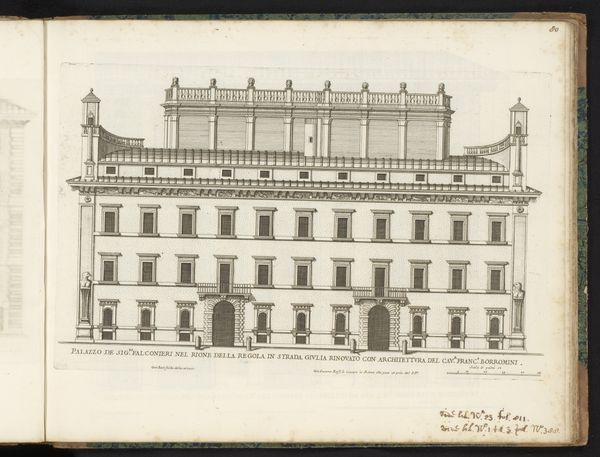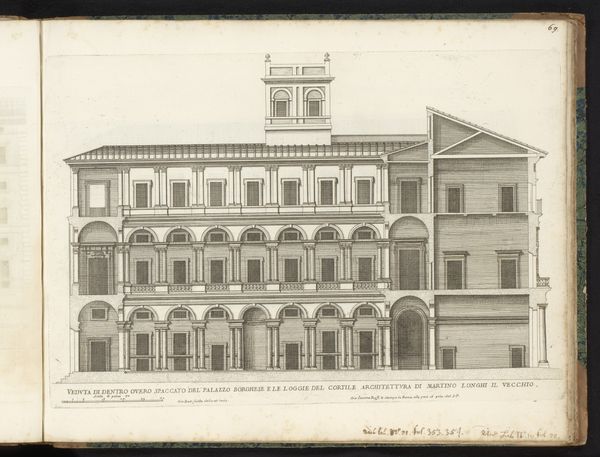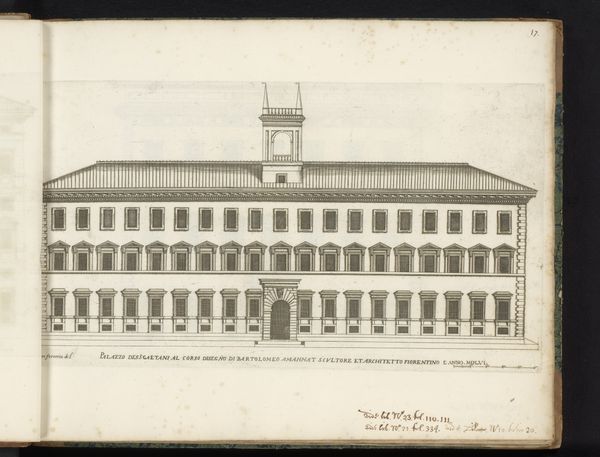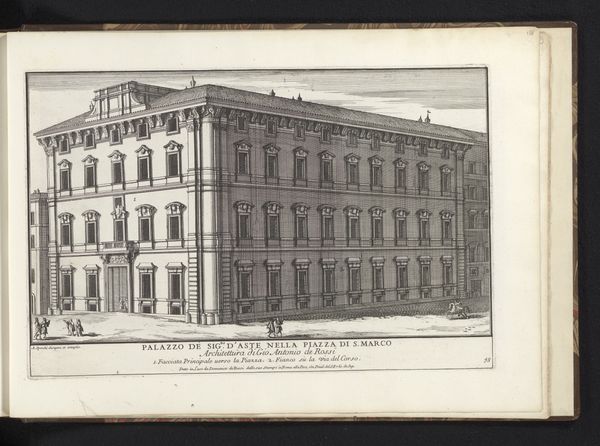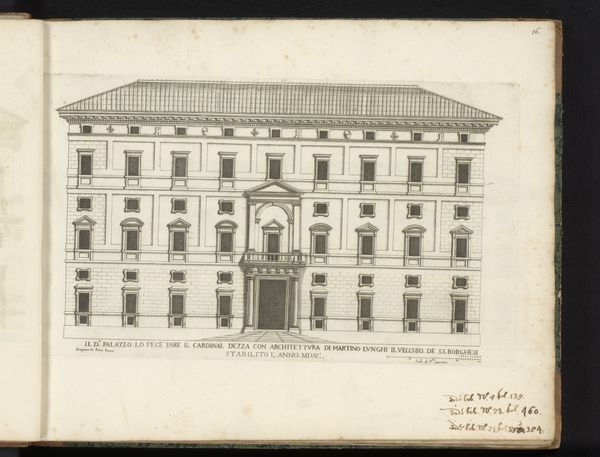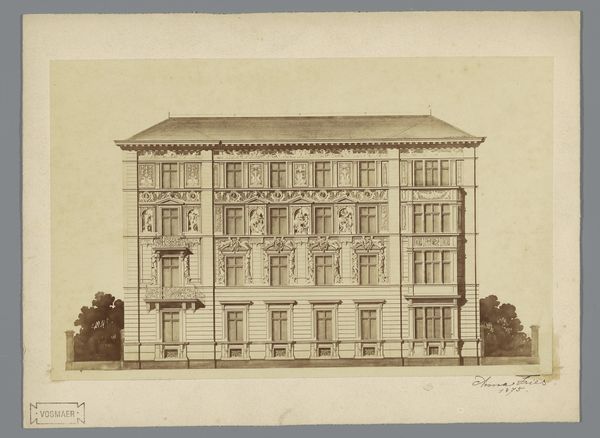
print, etching, engraving, architecture
#
baroque
# print
#
etching
#
cityscape
#
engraving
#
architecture
#
building
Dimensions: height 176 mm, width 418 mm
Copyright: Rijks Museum: Open Domain
Giovanni Battista Falda created this print of the Palazzo Doria Pamphilj façade sometime in the 17th century. The print shows a large building that occupies an entire city block with a series of evenly spaced windows, demonstrating the wealth and power of the Pamphilj family. This print offers insight into the relationship between aristocratic families and the urban landscape of Rome during the baroque era. Aristocratic families such as the Pamphilj became major patrons of architecture, using their wealth to construct elaborate palaces and other structures that reinforced their social standing. Through close examination, we can understand more about the urban environment of 17th-century Rome and the role that aristocratic families played in its development. To understand this print better, archival materials such as family records, architectural plans, and contemporary descriptions of the palace would be useful. It is a reminder that the meaning of art is contingent on social and institutional context.
Comments
No comments
Be the first to comment and join the conversation on the ultimate creative platform.
